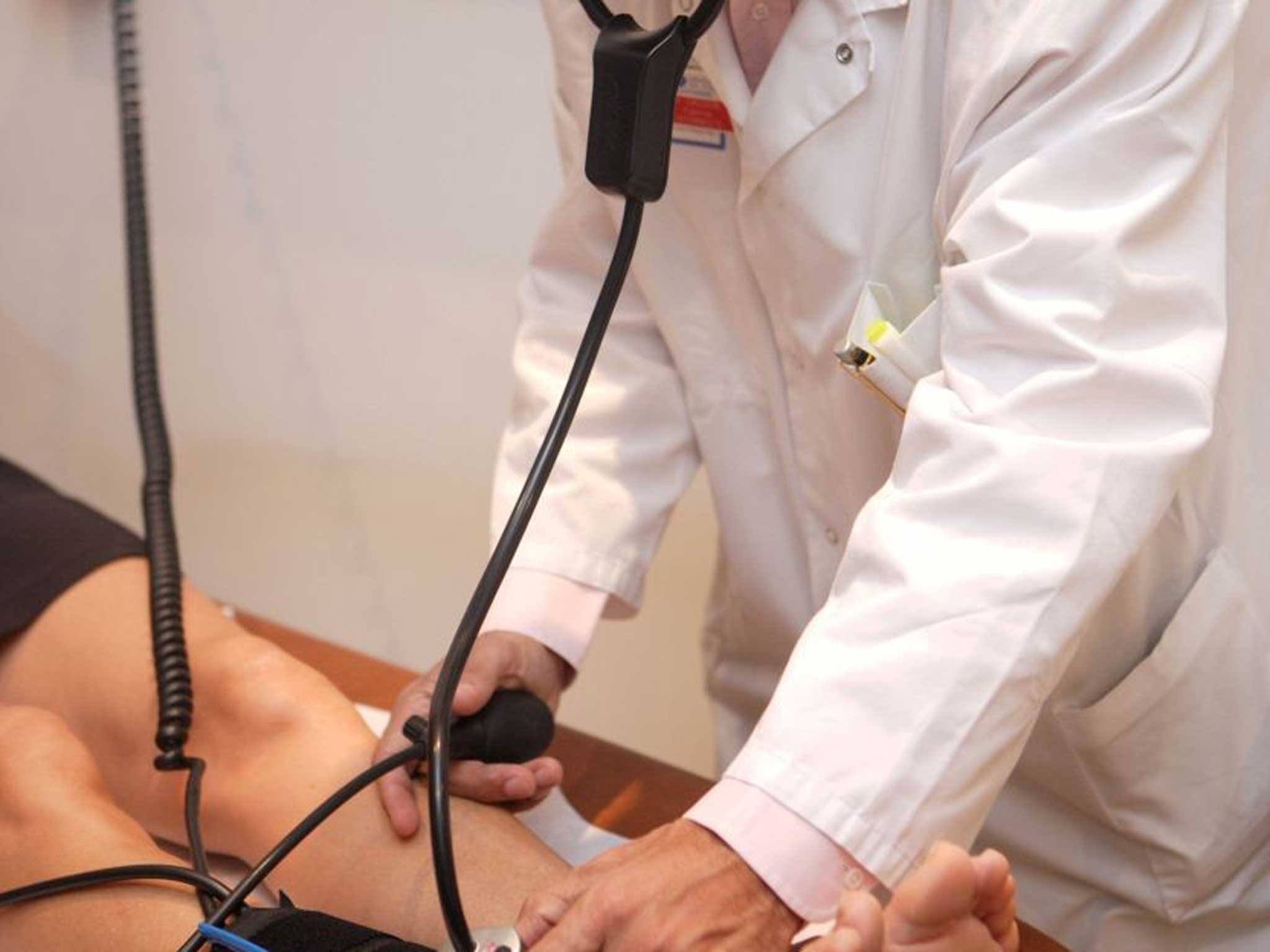Landmark legal case to rule whether GP exam 'discriminates' against Asian and black doctors
White candidates up to 14 times more likely than minorities to pass exam for membership of Royal College

Hundreds of black and Asian doctors have had promising careers "halted" because of racial discrimination in the way GPs are examined, a leading doctor has claimed, before a landmark High Court hearing in which two pillars of the medical establishment will be accused of breaching equality laws.
In a case that could have wide-reaching implications for equality in the NHS workforce, the British Association of Physicians of Indian Origin (Bapio), is bringing a judicial review against the Royal College of General Practitioners (RCGP), and the General Medical Council (GMC), the doctors' regulatory body, over claims that the college's membership exam, the MRCGP, which doctors must pass to practise as GPs in the UK, discriminates against minority ethnic candidates.
Studies show that white candidates are four times more likely to pass the exam first time than minority ethnic candidates trained in the UK, and 14 times more likely than candidates trained overseas. Concerns have focused on the Clinical Skills Assessment (CSA), which includes a mock consultation, with an actor posing as the patient.
Following a six-month review, a British Medical Journal (BMJ) report last year concluded that while there was no hard evidence of racism, "subjective bias owing to racial discrimination" in the marking of the CSA could not be ruled out as a reason for the differences in outcomes. The report also pointed out that there was no way of ascertaining whether the actors themselves behaved differently with non-white candidates.
Dr Ramesh Mehta, president of Bapio, said the CSA had become a block for hundreds of doctors who had received no complaints in three years of training before the final exam.
Bapio is currently supporting 25 east London doctors in employment tribunals related to the exam. Hundreds more are understood to be waiting for the outcome of the judicial review. This could leave the RCGP exposed to damages claims totalling hundreds of thousands of pounds.
"We do not want to compromise the quality of doctors who pass this exam, we want to make sure the best professionals are providing the best professional care. The system of assessment is extremely unfair and has nothing to do with patient care," Dr Mehta said. "These doctors taking the CSA have already been in training for at least three years, in which time they will have seen at least 3,000 patients. In that time they have regular assessment from trainers, they have passed other examinations, the only block is the CSA, which is three hours of assessment done with actors in the artificial environment of the college building."
Nearly one in four doctors registered in the UK qualified outside the EU. One fifth of doctors are of Asian or Asian British ethnicity and 3 per cent of doctors are black or black British, according to the GMC's figures. The health service has been criticised for failing to elevate black and Asian professionals to the highest ranks within hospitals and commissioning services. A BMJ Careers investigation last year found white doctors were three times more likely to be appointed to senior roles than ethnic-minority doctors.
The RCGP strongly denies allegations the MRCGP is discriminatory. Examiners are trained on equality and diversity issues and actors playing patients in the exam are also trained and monitored to ensure they behave consistently with all candidates.
However, the College has also been criticised for failing to acknowledge continuing criticism of the exam. It threatened the BMJ with legal action before the publication of last year's report, by Aneez Esmail, professor of general practice at Manchester University. The College said that another report, which presented Professor Esmail's formal findings from a six-month, GMC-commissioned study, published at the same time and using the same data, made no finding of discrimination.
However, Professor Esmail, accused the college and the GMC of "refusing to acknowledge the problems" his research had highlighted. He said this week's judicial review was a "hugely important case because of the precedent it will set for all the Royal Colleges".
An RCGP spokesperson said it was inappropriate to comment in advance of the court hearing.
William O'Neill, of Linder Myers Solicitors, which is acting for Bapio, said that “many people’s careers have been devastated by being thrown off the course” by the CSA segment of the exam.
“[Bapio] has tried to petition these organisations directly to get the system changed,” he said. “In the event of a successful outcome [to the judicial review], which we are confident of, the organisations will have to change their practices.”
Join our commenting forum
Join thought-provoking conversations, follow other Independent readers and see their replies
Comments